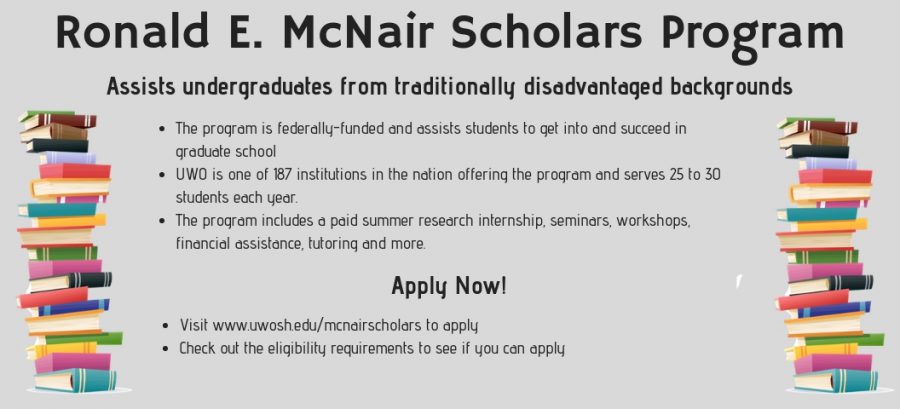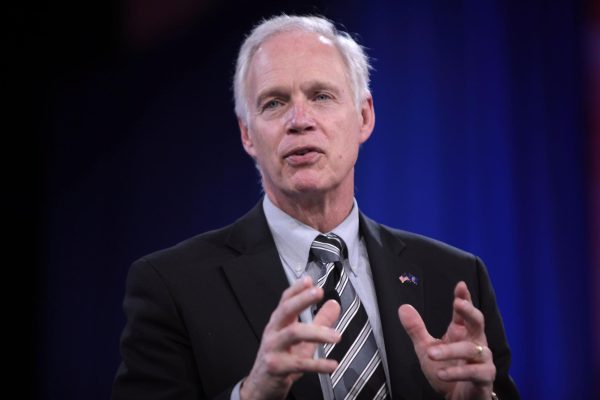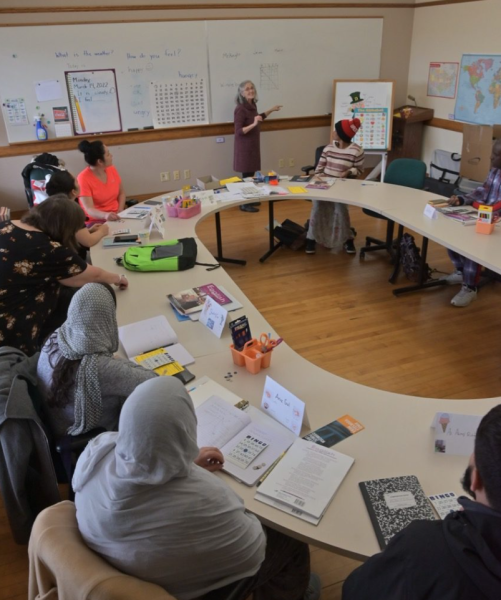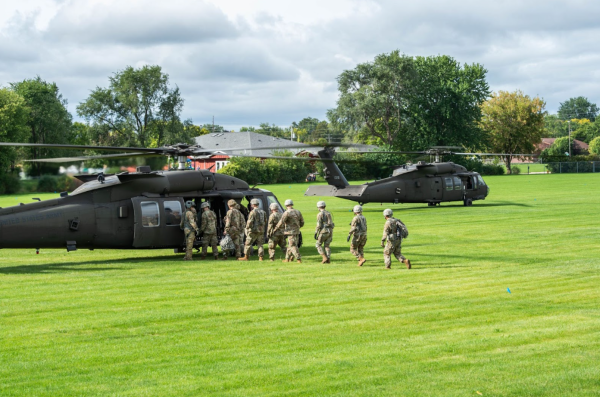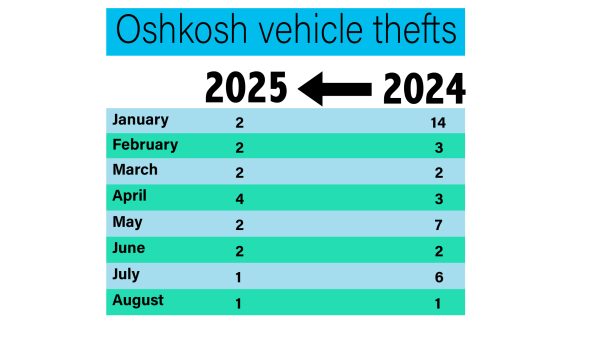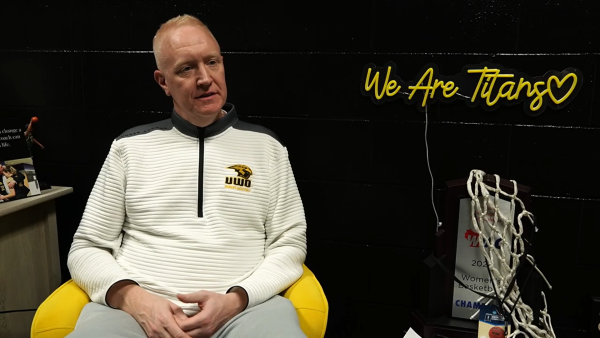McNair gives first-generation students opportunities
UW Oshkosh McNair Scholars will be presenting their research at the McNair Showcase, an invitation-only event, at the UWO Alumni Welcome and Conference Center on Sept. 25.
The McNair Scholars Program gives about 25 first-generation college students opportunities for similar life-changing experiences every year.
Students spent their summer getting paid to conduct field research with a faculty mentor. Each student was required to write a 20-page research paper on any area of interest.
McNair Scholars are first-generation, low-income students from underrepresented backgrounds. The McNair Scholars Program is designed to give these students skills and tools needed to get into and succeed at the graduate-school level.
McNair students are required to maintain a 3.0 GPA or higher and must be a junior in standing to participate in the paid research internship in the summer.
Cordelia Bowlus, the director of the McNair Scholars Program at UWO, said the program is exclusive to first-generation students with hopes of gaining a master’s degree or a Ph.D.
“Parents of these kids aren’t able to give them the information they need to fully understand all of the opportunities that are available to them,” Bowlus said.
Terrace Davis, a McNair Scholar from Champaign, Illinois, said when he was growing up, he didn’t think that college was an option until his high school wrestling coach persuaded him to come to UWO.
“College is like unheard of,” Davis said. “There’s a saying back home, ‘You go to college and chase hopes, or you help your mom pay the bills and sell dope.’ That’s what people are living by back there.”
The McNair Scholars Program helps students see their potential by doing hands-on research in a field of their choosing. Undergraduate research also helps McNair students improve their résumé, potentially setting students apart from future job applicants.
Associate Vice Chancellor and Dean of Students Art Munin said he hopes more students pursue undergraduate research, not only for the résumé boost but for the intrinsic rewards that undergrad research provides.
“It was transformative for me,” Munin said. “To be able to see yourself as an academic, as an undergraduate student. You have something to contribute.”
Chancellor Andrew Leavitt said he had nothing but praise for Cordelia Bowlus for helping students make a difference in the McNair Scholars program.
“She really cares about the students and wants them to be successful,” Leavitt said.
Munin said students don’t have to be a professor to do the same quality of work.
“My undergraduate research set up this lightbulb moment that there’s nothing special about the faculty that does this work,” Munin said. “I’m not saying they aren’t talented and intelligent, but there’s nothing special about them that says that I can’t do it too.”
Bowlus said another perk of being a McNair Scholar is that it allows students to apply to grad school free of charge.
“If anyone has the opportunity to do McNair they should,” Davis said. “It teaches you more about yourself. I never thought I would be able to write a 25-page paper in a couple of months.”
Davis said he learned a lot about himself by being in the McNair Scholars Program.
“McNair applies pressure, it applies a lot of pressure sometimes. It challenges you; I hated public speaking, I’m not good at it at all,” Davis said. “With McNair, I had to do it so much that I’m starting to hear that I’m a good public speaker.”


